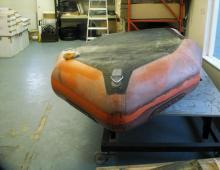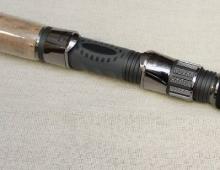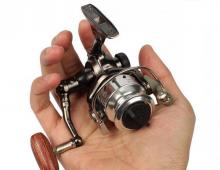Fish kill in winter: features, possible causes and ways to prevent
Recently, many owners of country houses and summer cottages are increasingly paying their attention to open water bodies where you can fish or just have a good time by organizing a picnic on the shore. However, in the spring they can expect a very unpleasant surprise in the form of fish thrown ashore. It is worth understanding in more detail when fish freeze occurs most often.
This kind of tragedy happens mainly in a frosty winter, when under a thick layer of snow and ice, various animals begin to die at a slow but inevitable pace - swimming beetles, dragonfly larvae and decorative, expensive species of aquatic inhabitants. Often, a fish kill is noticeable after the ice has melted, when a mass of half-decomposed fish corpses appears off the coast. But oxygen starvation occurs in living organisms in late February - early March, since dissolved oxygen has already been absorbed, and fresh oxygen has not yet arrived. The more severe the winter, the sadder the consequences can be.

Mankind knows several reasons why fish die in winter.
What can negatively affect the life of fish in winter
- Insufficient access of oxygen (or its absence at all) during the period of surface aeration under a layer of ice. In addition, oxygen is consumed not only by fish, but also by the decaying mass of zoo- and phytoplankton that has accumulated over the summer.
- The death of a significant number of algae with a decrease in air temperature (even the remaining vegetation cannot produce enough oxygen during photosynthesis in cold conditions and with little light).
- Water pollution by industrial or municipal waste, sewage.
- Poisoning the natural habitat of fish due to the harmful gases remaining under the ice layer (dioxide and carbon monoxide or methane and hydrogen sulfide, etc.). All these accumulations also reduce the level of dissolved oxygen in the water.

The only advantage of cold weather for freshwater may be slower respiration and decay. But the excess of the expendable part of the oxygen balance in the pond over the incoming one inevitably leads to such a phenomenon as the death of fish.
How to save fish from death in winter
Despite the fact that the winter kill of fish is a rather serious problem, it can be solved in fairly simple ways. It is enough to install an aerator in the pond, and for small ponds, a compressor with an air spray function is perfect. However, a conventional sprayer will not provide sufficient circulation if the pond area exceeds even one tenth of a hectare. In this case, the appearance of local dead zones is inevitable. Therefore, owners of large closed reservoirs are advised to install special flow-forming aerators that will not only saturate the water with oxygen, but also create the effect of a steady flow that mixes the entire water column.
How to determine the level of oxygen in water
Anyone who wants to know the exact temperature of the water and its degree of oxygen saturation can do this with a thermooximeter. Also, this device will help save electricity, because with sufficient water saturation, there will be no need to turn on the aerator. It is important to know that fish kill begins when the oxygen level drops to 6-7 mg/l (approximately 50 to 60% of normal saturation). Experts recommend purchasing a thermooximeter with a maintenance-free probe and a sufficiently long cable (at least 3-5 m).
How to keep fish from freezing if there is no aerator
Many experienced owners of reservoirs know that when fish die-off begins, it is important to have time to make a hole, thereby ensuring the flow of oxygen into the water. To do this, it is enough to periodically (at least twice a week) cut or break ice. It is also advisable to freeze sheaves of reeds, reeds, straw in the openings. You can use a pump (fountain pump), pumping water under the ice. This method will be very convenient for those who live far enough away and do not have the opportunity to often come to the reservoir.

It is worth noting that experts are skeptical about folk ways to save fish from starvation. They assure that the effect of them is only psychotherapeutic, since the ice holes are needed solely to monitor the behavior of underwater inhabitants in the winter (in closed reservoirs at the bottom, it is possible to see the dead individuals).

In addition, there may be an erroneous impression about the usefulness of “bald spots” in the ice, for the reason that initially, during a freeze, the fish desperately strives for air, after which it disappears somewhere, supposedly “breathing”. In fact, she simply dies or is looking for safer places. The opinion is strengthened by the identification of living individuals in spring and summer.
What is important to pay attention to to avoid freezing
Also, in winter, a fish kill can begin due to invasive diseases (chilodonellosis, ichthyophthiriosis, trichodiniasis) or infectious diseases (pseudomonosis). Water exchange, which improves the habitat of fish, will also help ensure safe wintering. In addition, it is important to pay attention to the minimum allowable depth of the reservoir - it must be at least 2 meters. Treat the pond with quicklime before wintering (about 100 kg per hectare) and do a laboratory analysis of the water from the source that feeds the reservoir. The results obtained must be carefully studied and compared with the standards established for water in fishery reservoirs.
Should fish be fed in winter?
In conditions of low temperatures, the fish easily endure starvation, so it is not necessary to feed it. Moreover, the remains of food can decompose at the bottom and be harmful. But the exception is trout - it absorbs a small amount of food at water temperatures above +2 degrees. It is recommended to feed her in moderation several times a week. Feed is recommended to stop giving under the condition of passive eating. It is better to install a special feeder, thanks to which the fish independently chooses the time of feeding and the amount of food.
Winter fishing will help to identify a freeze
True fishermen do not lose time at any time of the year - they tend to the pond in the thaw and even in the cold. But catching fish in a freeze can negatively affect the catch, so it is better to identify the tragedy in a timely manner and prevent it.

So, you can define a freeze by the following signs:
- Rapid death of live bait.
- Darkening of fishing line, brass and copper spinners.
- Dead water insects on the surface.
- Throwing young animals in search of clean water.
- Termination of the course of fish in the holes.
Under such conditions, fishing promises to be just a failure. Moreover, catching fish at the time of its active move to the holes is considered poaching.
It is important not to panic and remember that winter freezes are a solvable problem. Ensure successful overwintering of your fish using the above methods and keep an eye on the condition of the water in the pond to avoid unpleasant surprises.



